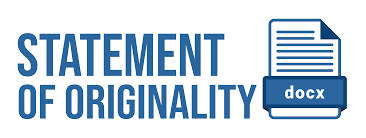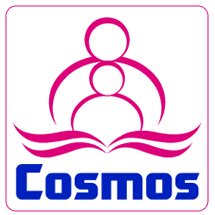SPEECH ERRORS IN ENGLISH AS A FOREIGN LANGUAGE ON SOUTH KOREAN TV SHOW "MY ENGLISH PUBERTY 100 HOURS"
DOI:
https://doi.org/10.32520/eji.v6i2.1942Keywords:
Communication, Artists, TV Show, Speech ErrorsAbstract
Abstract
The speech errors in the South Korean TV show "My English Puberty 100 Hours" are examined in this study. Using Clark & Clark and Fromkin's theory, the researcher investigates many speech errors. Researchers pioneered the speech error patterns of artists by studying the types of speech errors. In addition to these two aspects, the researcher used Clark & Clark's theory to investigate the reasons for speech errors. The qualitative descriptive analysis method is used in this study. The data was gathered from the English utterances of the artists who took part in the television show "My English Puberty 100 Hours." After watching the video numerous times, the researcher created a transcript to collect data. The researcher found that two speech errors, namely silent pause and interjection, did not show their presence in the study. Meanwhile, the researcher could not find four types of a slip of the tongue, including anticipation, preservation, misderivation/shift, and haplologies/blend. The researchers found that in the television show "My English Puberty 100 Hours," artists frequently make speech errors. A repeat is a form of speech error that artists frequently exploit. The most common types of a repeat are phrases and function words in pronouns. Artists make speech errors for various reasons, depending on the circumstances. Cognitive difficulties, situational anxiety, and social circumstances all play a role in each artist's reasoning.
References
Carroll, D. W. (1986). Psychology of Language. Pacific Grove, California: Brooks/Cole Publishing Company
Carroll, D. W. (2008). Psychology of language 5th edition. United States: Cengage Learning.
Clark, H. H. and Clark, E. V. (1977). Psychology and Language: An Introduction of Psycholinguistics. New York: Harcourt Brace Jovanovich Publishers.
Dardjowidjojo, S. (2014). Psikolinguistik: Pengantar Pemahaman Bahasa Manusia (Second ed.). Jakarta: Yayasan Pustaka Obor Indonesia.
Fromkin, V.A. (1973). Speech Errors as Linguistic Evidence. Los Angeles: University of California.
Gleason, J. B. and Rather, N. B. (1998). Psycholinguistics (2nd ed.). New York: Harcourt Brace College Publishers.
Hartley, A. (1982). Linguistics for language learners. Hongkong: Macmillan Press Ltd
Indah, R. N. (2017). Language Production and Speech Error. Presented at the course Psycholinguistics, Department of English Language and Letters Faculty of Humanities Maulana Malik Ibrahim State Islamic University. (Unpublished)
Kova?, M. M. (2011, June). Speech Errors in English as Foreign Language: A Case Study of Engineering Students in Croatia. English Language and Literature Studies, Vol. 1, No. 1; DOI:10.5539/ells.v1n1p20
Kova?, M. M., & Horga, D. (2010). Speech errors of technical studies students. Slavisti?na revija. 58 (4), 419-443.
Laure. (2018, December 6). "My English Puberty 100 Hours" (2018 TV Show): Cast & Summary. Retrieved November 26, 2019, from Kpopmap: https://www.kpopmap.com/my-english-puberty-100-hours-2018-tv-show-cast-summary/
Rodgers et al. (2010). Voice and Fluency Changes as a Function of Speech Task and Deep Brain Stimulation. In Journal of Speech, Language, and Hearing Research (2010) Vol. 53, 1167–1177
Sugiyono. (2017). Metode Penelitian Kuantitatif, Kualitatif, dan R&D. Bandung: Alfabeta, CV.
Wijayanti, F. I. (2013). Speech Errors in A Talk Show Program of Metro Tv Face to Face with Desi Anwar Broadcasted in January to June 2012. Graduate Program. Magister Of Language Study. Muhammadiyah University of Surakarta.
Yule, G. (1985). The Study of Language. London: Cambridge University Press.




















